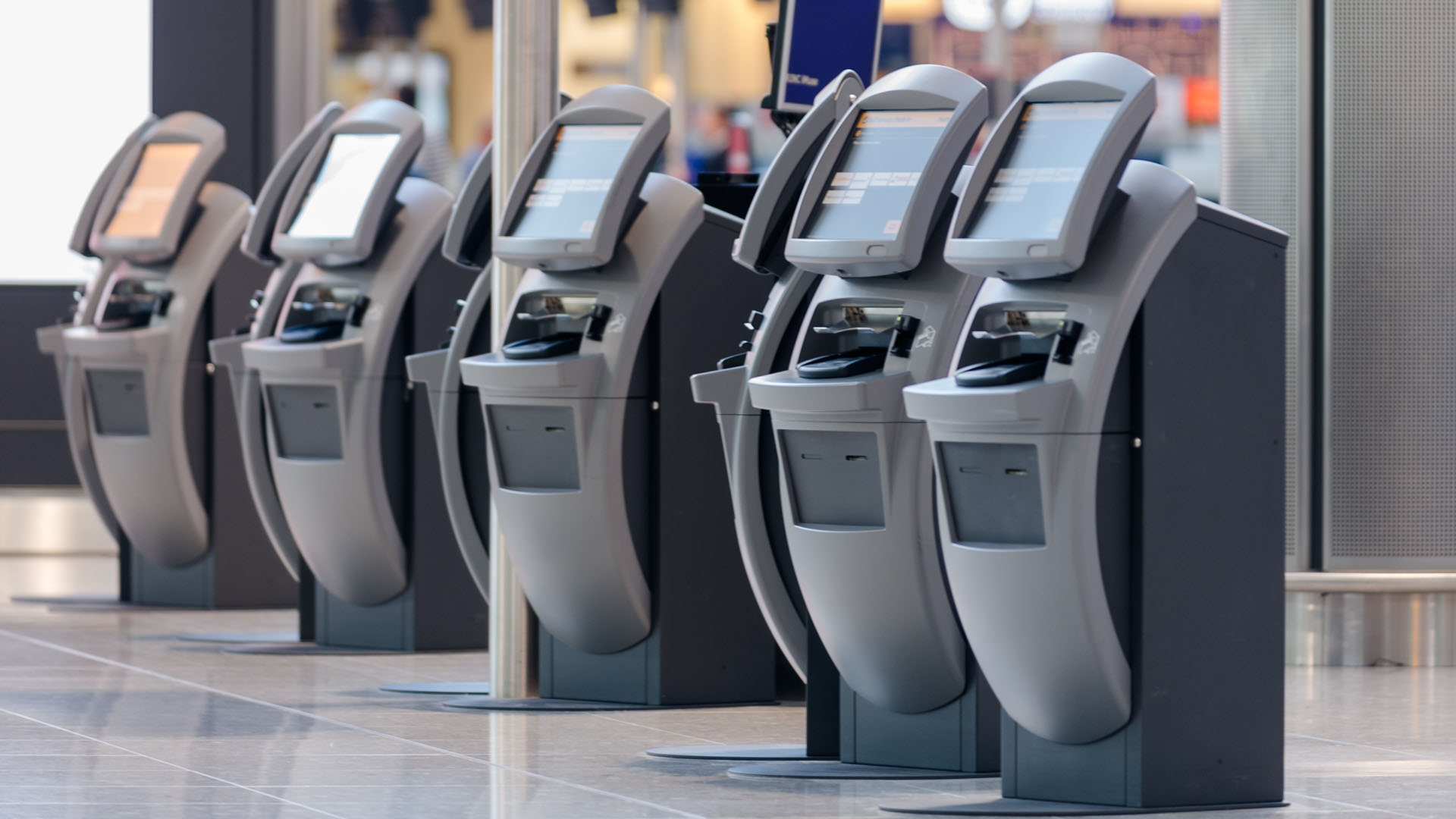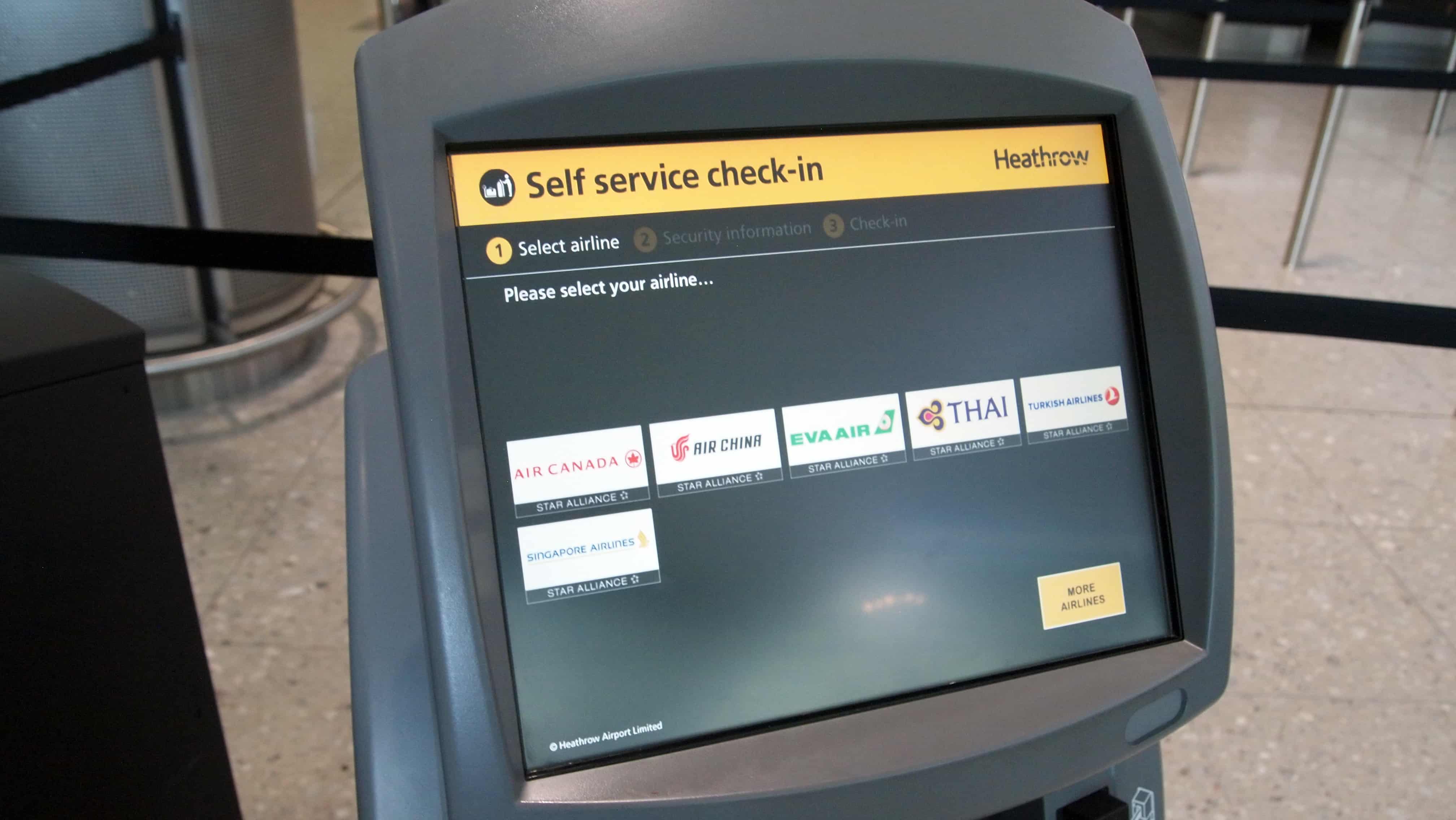What are self-service kiosks?
Self-service kiosks have proved a revolutionary innovation in making life easier and quicker for people in a variety of scenarios. Whether doing the daily shop, checking in for a doctor's appointment, posting a parcel or parking at the airport before jetting off on holiday – self-service kiosks play a vital part in cutting time and effort from many parts of our everyday lives.
The rise in the number of self-service kiosks, and the range of industries in which they are employed, is down to both the advancement of technology and the demand from consumers who are living increasingly busy lives. No longer are we willing to tolerate long queues for cashiers. Even browsing in retail environments has been adopted by self-service kiosks, making the experience of looking for a product quicker and easier – and allowing shoppers to browse and buy all through one interface.
Self-service kiosks started out as simple pay-and-display machines. But as technology has advanced, so too has the ability for machines to provide a more sophisticated level of customer service. Today's cutting-edge models use advanced software to handle a multitude of tasks including purchasing, market research, check in processes and ordering food in restaurants. The software used in modern kiosks can also be integrated with mobile app technology – either to create a fluid user experience for the customer, or to provide integrated management tools for the operator.
In more and more industries, particularly in locations with heavy footfall, self-service machines are making a big difference to our fast paced lives.
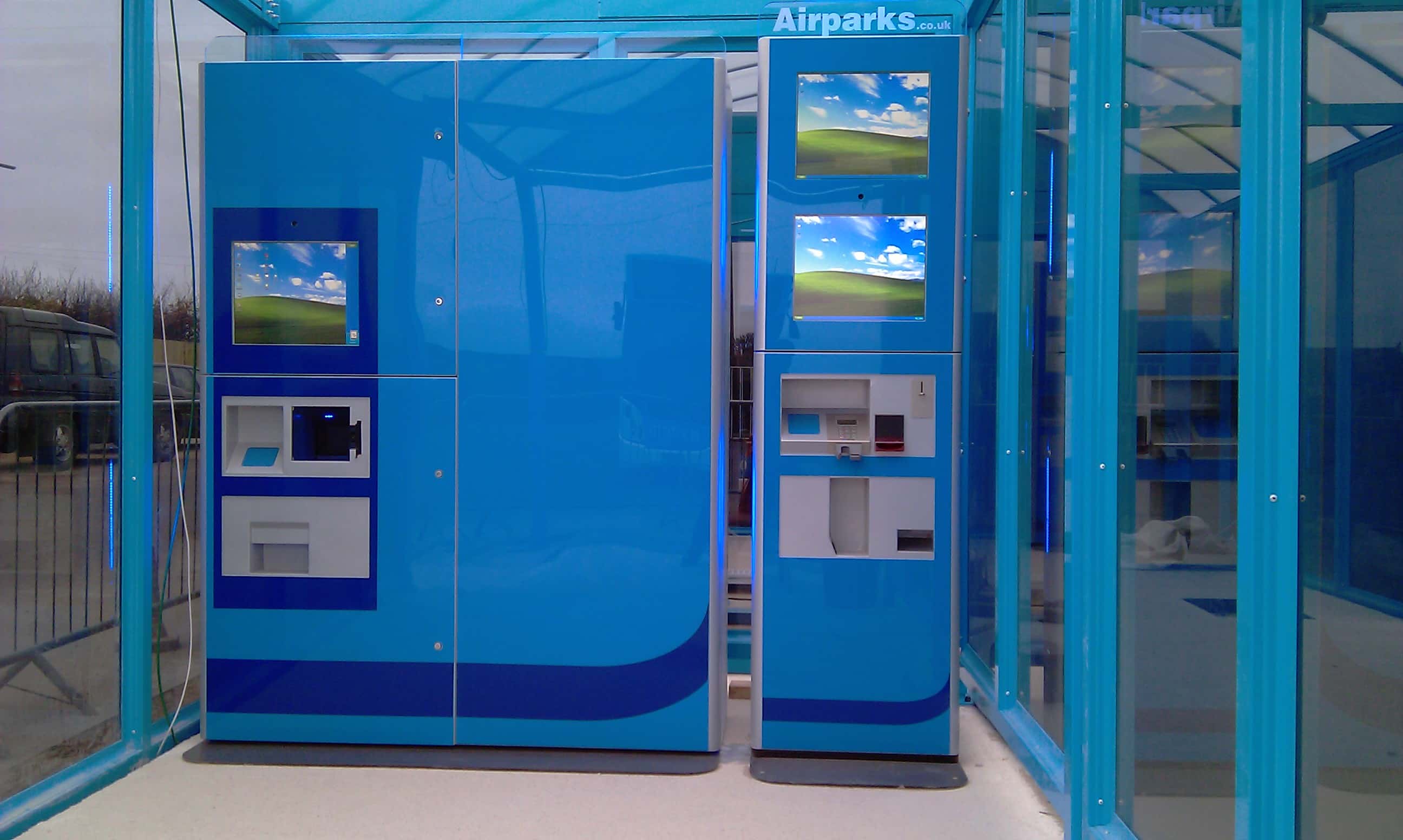
How can self-service kiosks be used for airport parking?
Aviation is one industry in the UK that is greatly benefitting from the advancement in self-service technology. The airport can be a very congested and stressful environment with long queues and waiting times. New technology is allowing more airports to replace flight check-in, baggage check-in and airport car parking processes with automated machines – drastically improving the experience of air travel as a whole.
One example of how smart self-service kiosks are being employed in the airport industry is the airport-parking kiosk. Park IT is a multi-faceted car parking solutions provider that uses software in combination with self-service kiosks to vastly improve the airport parking experience.
In car parks that use Park IT software, state-of-the-art touch screen kiosks allow drivers to check in and out through a fully automated system. The kiosks are specifically built for purpose and are digitally linked up to custom designed lockers where travellers can leave or collect keys at the start or end of their trip. The kiosks and lockers have been designed to allow access from both sides, helping to improve the flow of traffic and significantly reduce waiting times.
Park IT's innovative system is transforming the airport parking experience for both customers and car park operators across the UK. It's a clear example of how development companies have taken hold of a rapid progression in self-service technology and used it to the advantage their customers.
What are the consumer benefits of self-service kiosks?
For any industry that utilises automated technology, the primary focus is around the customer and the experience they will have of the product or service they are interacting with.
So exactly how do self-service kiosks benefit consumers?
Firstly, self-service kiosks improve the customer experience
Self-service kiosks provide a better experience for people who like to do things for themselves, to get the job done and to have control of their buying experiences. In this age of fast-paced lifestyles, more and more people are finding self-service machines to be an indispensable part of life.
Some may argue that self-service machines depersonalise the customer service experience. But in reality, what they do is to speed up processes that are necessary but not enjoyable – meaning customers can spend more time doing the things they want. And because the machines are capable of handling the transactional elements, staff can focus more on other areas of customer service, contributing further to a positive customer experience.
For air passengers, the simpler and quicker the process of parking the better. With a plane to catch, drivers want an efficient, no frills process so that they can get to the terminal as soon as possible. By using self-service machines to automate the checking in system, it all happens much more quickly. What's more, customers feel as though they have more control over the whole process, leading to higher rates of satisfaction. Park IT kiosks can process both cash and card payments, or search for a pre-paid booking by inputting customer or vehicle data – giving consumers a choice as to how they pay for their booking.
Car parking companies using Park IT systems have reported better customer engagement and a higher number of positive reviews after introducing the software and kiosks to their sites.
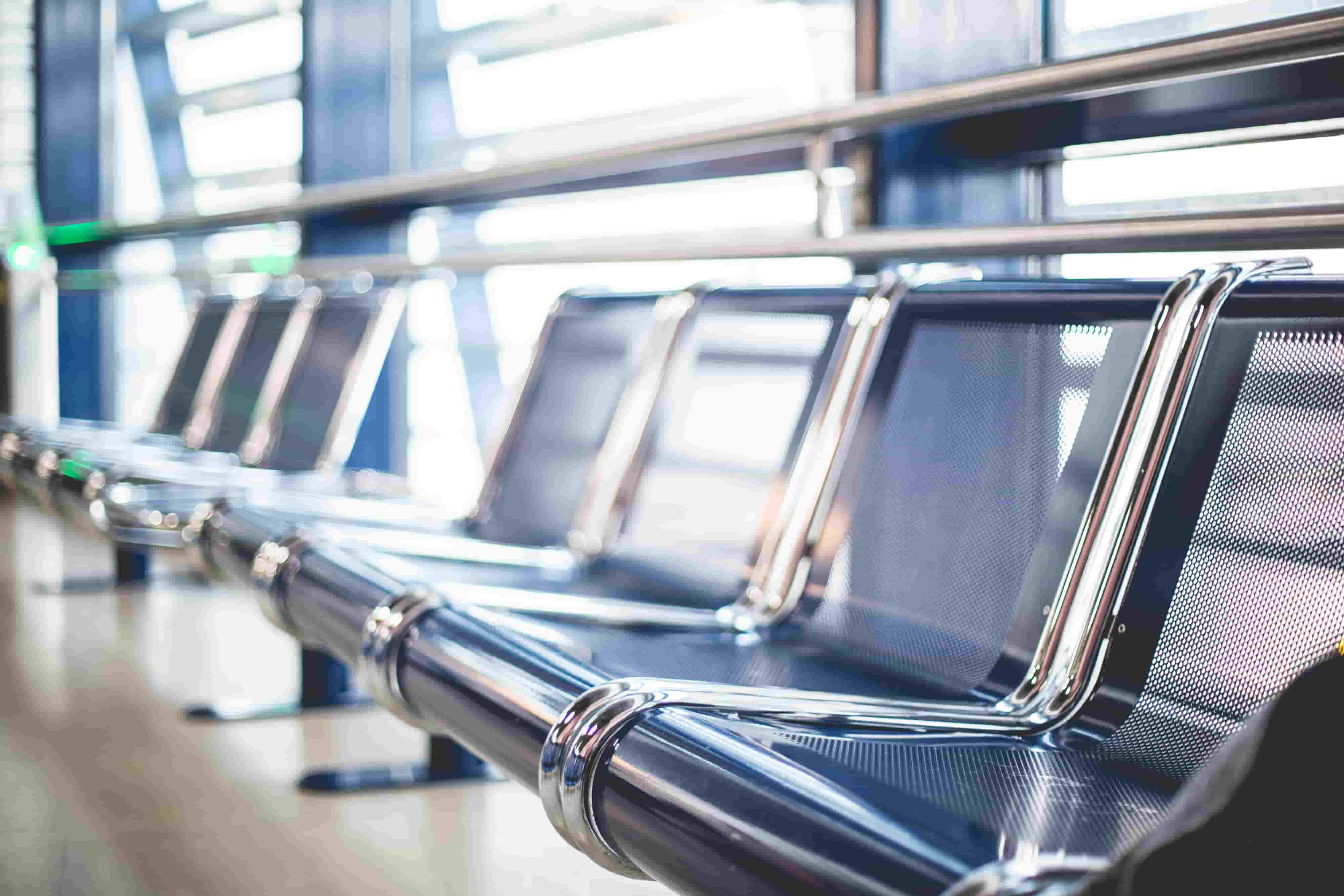
Secondly, automated kiosks reduce delay and stress
Automating processes makes them quicker. The quicker the transaction is, the greater the amount of traffic that can pass through the process in a given timeframe. The result is a reduction in queues and delays – and therefore stress.
In airport car parks, self-service kiosks have proved a very practical tool in drastically reducing the amount of traffic on site, therefore lowering stress levels for users in a rush to catch their flight. For example, because Park IT kiosks and key lockers can be accessed from both sides, this effectively splits the queue in two and handles two transactions for every two that would have been possible with a cashier.
Because the kiosks and lockers are linked through computers, the recording of keys is far more efficient and accurate than old-fashioned offline systems. This not only keeps car parks flowing, but also reduces the risk of misplaced keys or delays that might agitate car owners.
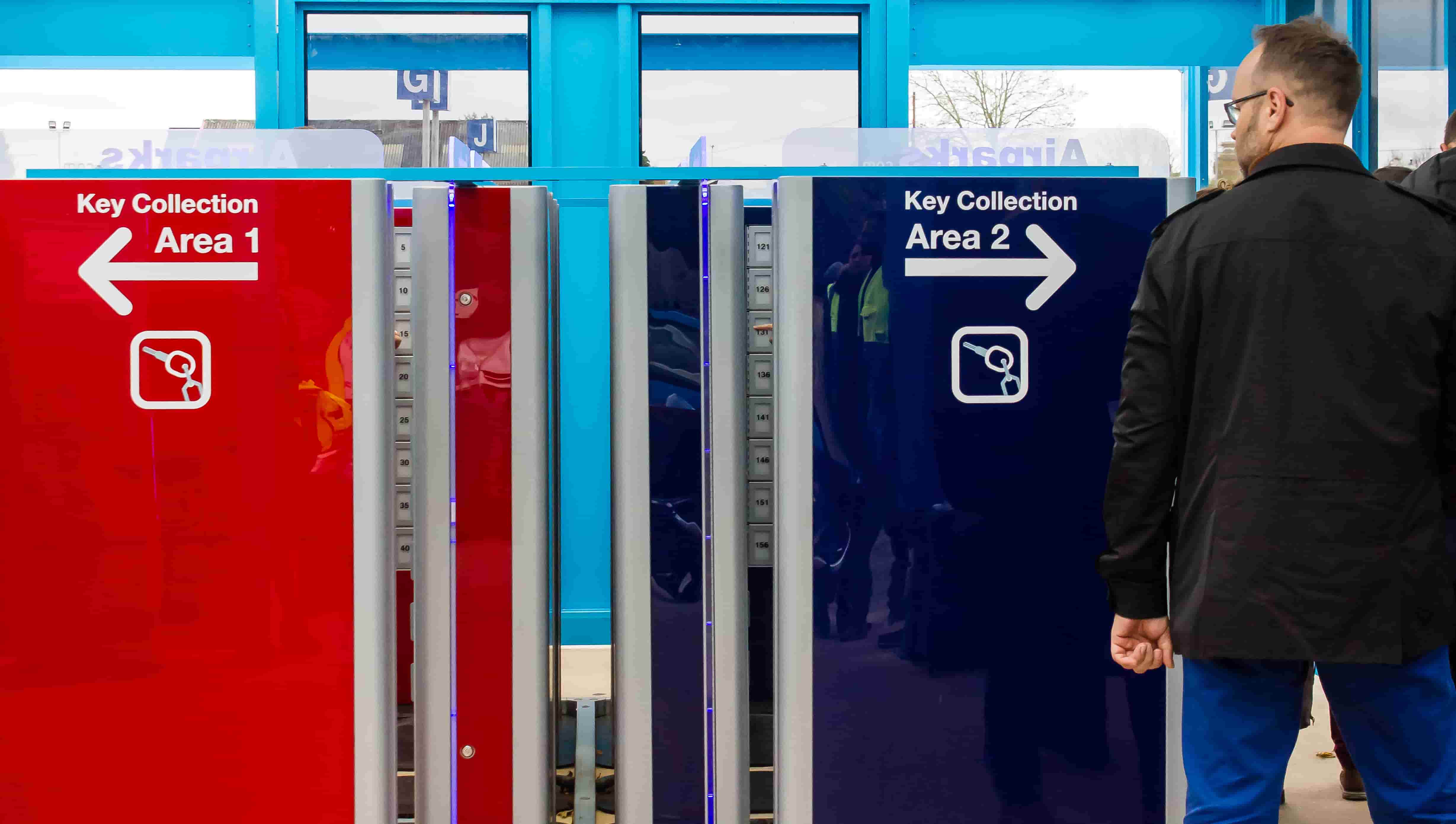
What are the business benefits of self-service kiosks?
They make businesses more profitable
Kiosks can cut a lot of time and cost for businesses when it comes to labour. With the machine able to handle a number of administrative tasks, operators could reduce the amount of staff required, thus saving on overheads.
Alternatively, operators may choose to re-allocate staff to more important or complex jobs. For example, airport parking staff could concentrate on the movement of cars while the machines look after the check in and out process. Re-structuring workload in this way would allow the whole operation to be far more efficient, therefore allowing a higher throughput of cars and consequently higher profit margins.
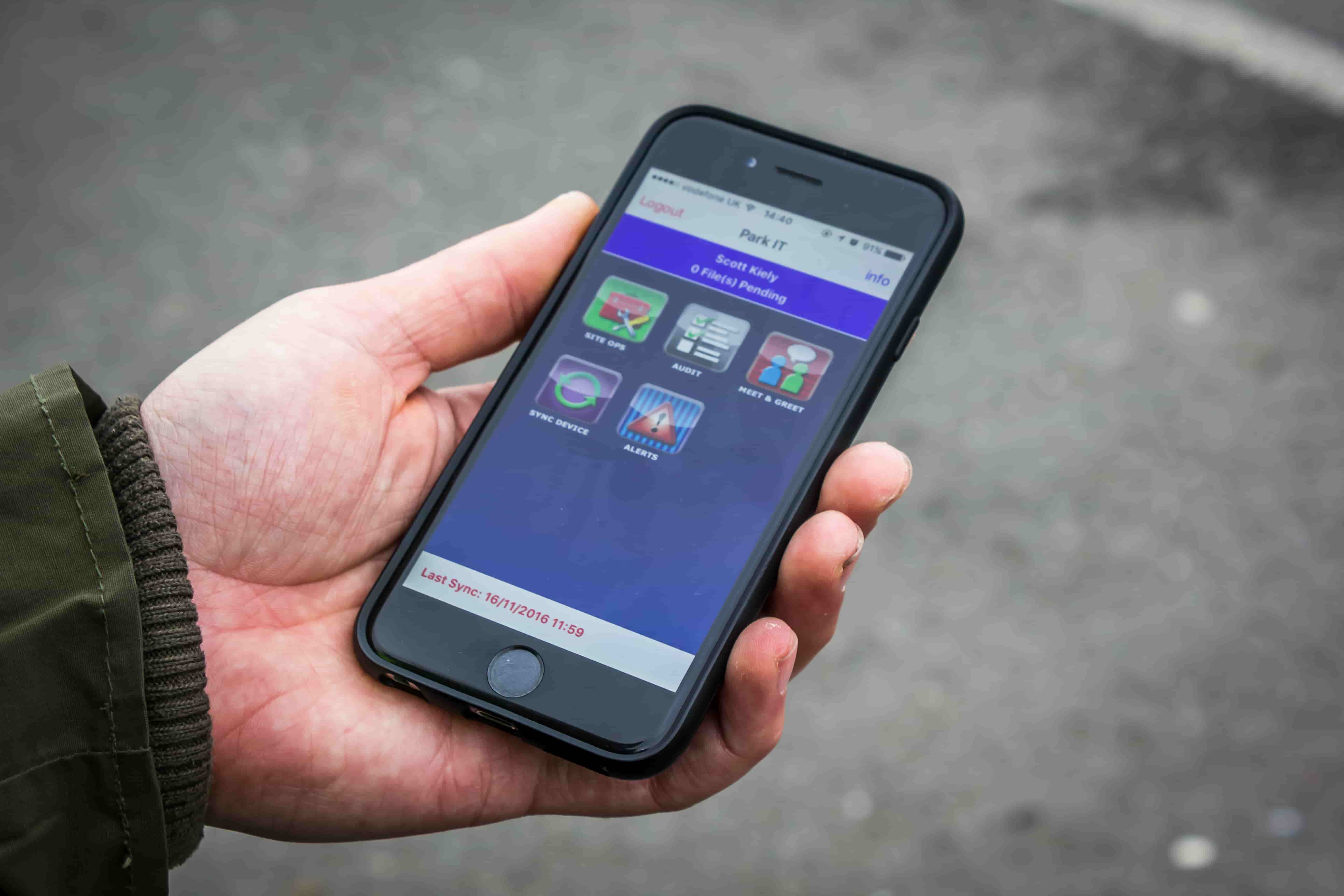
Kiosks can interface with mobile technology
Now that self-service kiosks have been adapted to integrate with mobile technology, many further benefits have become apparent. Customers or staff interacting with automated kiosks can carry out functions without the need to be located in central point – for example airport parking staff can receive alerts on mobile devices when a car needs to be moved for cleaning or collection. In this instance, the staff member can continue to carry out other tasks whilst being able to respond quickly to customer service functions as and when required. For businesses, this can hugely increase the productivity and efficiency of staff.
Another feature of Park IT software to utilise mobile technology is the management oversight capability. The software feeds information from kiosks and lockers directly to manager's mobile devices, allowing them to keep tabs on vehicle and key movements, staffing levels and peaks and troughs in traffic flow.
They offer mobile security management
As mentioned above, integration of airport kiosks with mobile technology can prove extremely useful to staff efficiency and customer service. And another advantage of integrated mobile technology is security management. With Park IT software, operators can use mobile apps to remotely manage security functions. Park IT's mobile technology allows management to see the location of any car, or any set of keys, at any time. In combination with existing surveillance systems, the app adds an additional layer of security and peace of mind for both customer and car park operator.
Self-service kiosks can offer multiple optional services
Thanks to complex software, modern kiosks can be multifunctional. As well as the primary function, there's the option of adding additional services to self-service kiosks. With a clear and simple touch screen interface, add-on services can be clearly promoted and selected with the touch of a button.
For example, airport car parks could provide an add-on valeting service, which the customer selects and pays for during the check in process. This is of benefit both to the consumer, who can access multiple services through one interface, and the operator, who can upsell added value services.
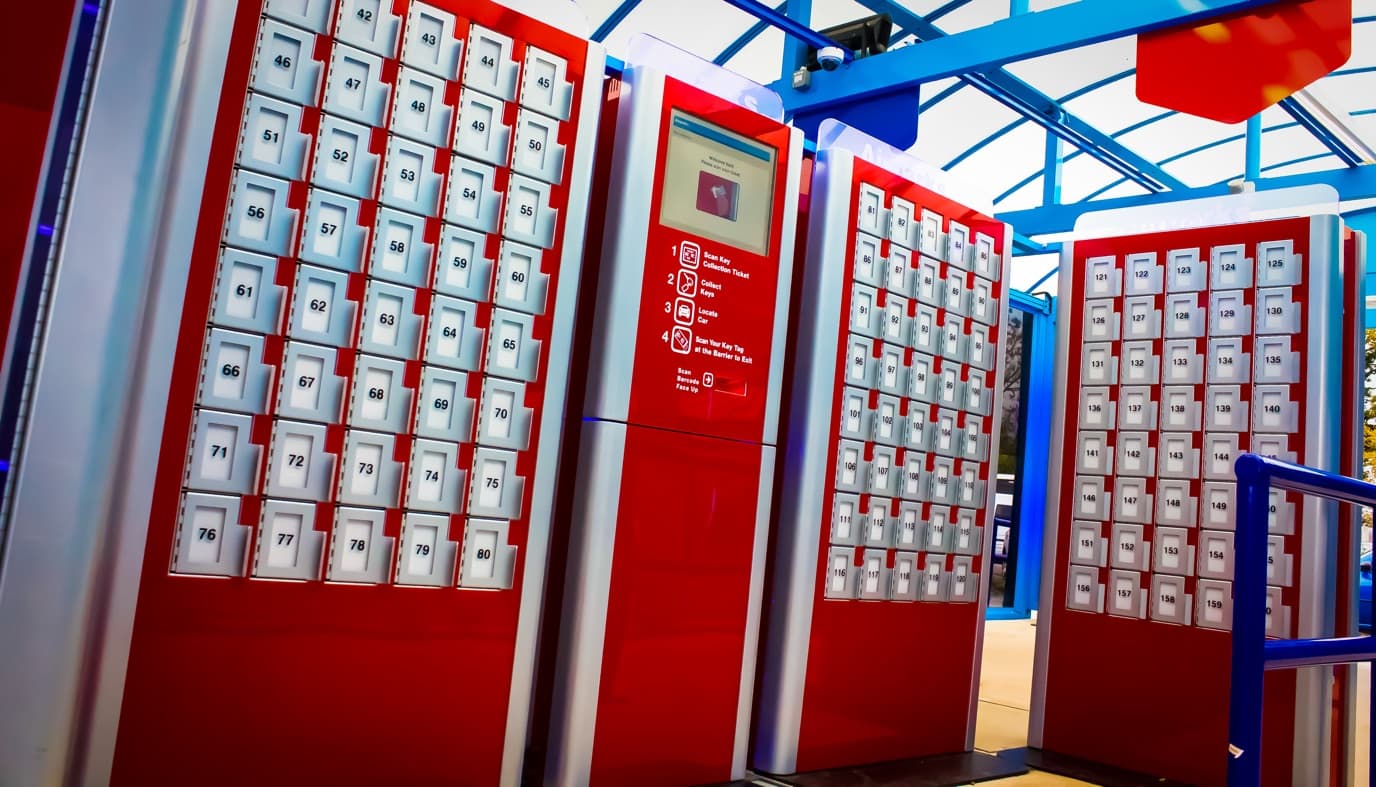
Park IT's Self Service Kiosk: the future of airport parking
As with many other industries, the self-service kiosk has significantly improved both the efficiency and customer experience of airport parking. In combination with Park IT's intelligent software and mobile integrated technology, kiosks are helping to contribute to a solution that works for both the user and the operator. For travellers it reduces waiting times, improves traffic flow and security, lessens stress and allows greater choice and control. For operators the benefits are greater management oversight, increased security and a more efficient and profitable operation.

